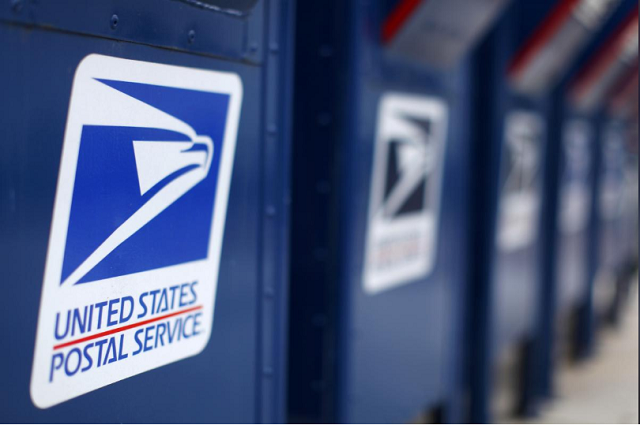
The task force was announced in April to find ways to stem financial losses by the service, an independent agency within the federal government. Its creation followed criticism by Trump that the Postal Office provided too much service to Amazon for too little money.
It has been losing money for more than a decade, the task force said, partially because the loss of revenue from letters, bills and other ordinary mail in an increasingly digital economy have not been offset by increased revenue from an explosion in deliveries from online shopping.
Amazon launches in Turkey
The president has repeatedly attacked Amazon for treating the Postal Service as its “delivery boy” by paying less than it should for deliveries and contributing to the service’s $65 billion loss since the global financial crisis of 2007 to 2009, without presenting evidence.
Amazon’s founder Jeff Bezos also owns the Washington Post, a newspaper whose critical coverage of the president has repeatedly drawn Trump’s ire.
The rates the Postal Service charges Amazon and other bulk customers are not made public.
“None of our findings or recommendations relate to any one company,” a senior administration official said on Tuesday.
Amazon shares closed down 5.8 per cent at $1,669.94, while eBay fell 3.1 per cent to $29.26, amid a broad stock market selloff on Tuesday.
The Package Coalition, which includes Amazon and other online and catalog shippers, warned against any move to raise prices to deliver their packages.
“The Package Coalition is concerned that, by raising prices and depriving Americans of affordable delivery services, the Postal Task Force’s package delivery recommendations would harm consumers, large and small businesses, and especially rural communities,” the group said in an emailed statement.
Most of the recommendations made by the task force, including possible price hikes, can be implemented by the agency. Changes, such as to the frequency of mail delivery, would require legislation.
The task force recommended that the Postal Service have the authority to charge market-based rates for anything that is not deemed an essential service, like delivery of prescription drugs.
BAD NEWS FOR AMAZON
“Although the USPS does have pricing flexibility within its package delivery segment, packages have not been priced with profitability in mind. The USPS should have the authority to charge market-based prices for both mail and package items that are not deemed ‘essential services,’” the task force said in its summary.
That would be bad news for Amazon and other online sellers that ship billions of packages a year to customers.
“If they go to market pricing, there will definitely be a negative impact on Amazon’s business,” said Marc Wulfraat, president of logistics consultancy the MWPVL International.
If prices jumped 10 per cent, that would increase annual costs for Amazon by at least $1 billion, he said.
The task force also recommended that the Postal Service address rising labor costs.
Amazon scraps secret AI recruiting tool that showed bias against women
The Postal Service should also restructure $43 billion in pre-funding payments that it owes the Postal Service Retiree Health Benefits Fund, the task force said.
Cowen, in a May report, said the Postal Service and Amazon were “co-dependent,” but that Amazon went elsewhere for most packages that needed to arrive quickly.
Cowen estimated that the Postal Service delivered about 59 per cent of Amazon’s US packages in 2017, and package delivery could account for 50 per cent of postal service revenue by 2023.
The American Postal Workers Union warned against any effort to cut services. “Recommendations would slow down service, reduce delivery days and privatise large portions of the public Postal Service. Most of the report’s recommendations, if implemented, would hurt business and individuals alike,” the union said in a statement.








1732618327-2/Untitled-design-(7)1732618327-2-270x192.webp)

1719640649-0/BeFunky-collage-(77)1719640649-0-270x192.webp)






COMMENTS
Comments are moderated and generally will be posted if they are on-topic and not abusive.
For more information, please see our Comments FAQ